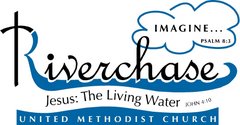I have been writing about winning our biggest battle – this year, or any year. Here are some concluding thoughts.
There is another battle, often externalized, but the essential center of which is within. It has to do with how we respond to the wrong-doing of other people. It is not just the wrongs they do us, but the wrong we see them doing. We forget the admonition of the Psalmist who said: "Fret not thyself because of evil doers" (Psalm 37:1). It is bad enough to be harmed by our own wrong-doing, but sadder still that we be done in by our attitude toward the sins of others. We want to see them get what we think they deserve. We tend to think that punishment and revenge will help our feelings, but as strange as it may seem, this only compounds our problem with the sins of others. It has been correctly observed that "revenge is the sweetest morsel to the tongue ever to come out of hell." The problem is: you never get the taste of ashes out of your mouth.
Whether the sin of others is against us personally, or against someone we love, or simply against our principles of decency, only love and forgiveness will properly settle the issue so that we may get on with our lives without letting their lives stand in our way.
We expect the church to help us deal with imperfection, failure, and sin. Ironically, the church has not always been successful in helping people deal honestly or creatively with their own sin or the sin of others. There are solutions we have inherited from the past which, more often than you might expect, do not fit the dilemmas generated by our life experiences. There is a frightening tendency on the part of those of us who are religious in conventional ways to think of society as "them" and "us." Thus, we fail to see any of "them" in "us" or "us" in "them."
For instance, we tend to regard the homeless with a condescending pity that suggests that there is nothing of them in us, or us in them. But, we all know people with houses who are homeless. We may be people with houses who are homeless. We are horrified by people who are addicted, but the truth is that we live in a society of addicts. Most of us are caught up by or recovering from something that drags us down.
Dr. Cecil Williams, long time pastor of Glide Memorial United Methodist Church in The Tenderloin in San Francisco, put addiction into perspective when he said: "When you become obsessed with anything to the extent that you rely on it for your grasp on reality, you are addicted. Some of us are addicted to substances like drugs, alcohol, nicotine, or food. Some are addicted to abusive relationships. Some of us are even addicted to religion. We crave being absolutely right about what we believe, and think that everyone else has to become like us. Toxic relationships, toxic substances, and toxic religion are all addictions from which we need recovery in order to live fully."
If the list of addictions was exhaustive, you would find most of us somewhere on it. Does that mean we have to win complete victory over our sins and addictions in order to be persons of worth? Once again, Dr. Cecil Williams, who has modeled grace better than any pastor I know, touches a sensitive nerve with this startling reminder: "Listening to church folks, you’d think that getting the spirit makes you good, perfect, and holy. But, read the Bible for yourself. The Bible is full of real, spiritual people who have messy, imperfect lives."
In order to win the big battle in life, it is necessary to give our best efforts to letting the philosophy of our faith rule our lives, so that forgiveness and love will have dominion over our inclination toward bitterness and revenge. But, as important as that may be, it is not enough. There always comes a time in which we reach the margins of our own strength. We need help – both human and divine.
What a great joy it is to find a community of faith where truth and grace dominate – where pretension and judgment are seldom seen. It is my hope and prayer that you have a place like that. How fortunate we are if we belong to a loving fellowship of people who reflect the spirit of Jesus as they pull with us and for us in our time of need.
We are greatly empowered when we believe someone else is pulling with us and for us. We need not go at it alone. There is help – human and divine. It is incumbent upon us to do all we can in the battle of life, but we are not in this fight alone.
Let me conclude this series of 3 columns with a prayer from and for us all.
We confess, O Lord, that we cannot handle the big battles of life alone. Help us to begin the process of forgiveness of those offences too heavy to carry and too serious to turn loose. Teach us to love people we do not like, enemies we had rather hate, and friends who have been careless in their relationships with us. When we reach the margins of our strength, give us loving friends to help us. And when we come to that time in which humans cannot help, we pray that you will be our strength and guide. Amen.
Wednesday, March 7, 2007
Subscribe to:
Post Comments (Atom)


No comments:
Post a Comment